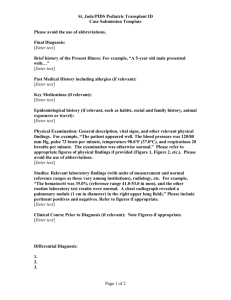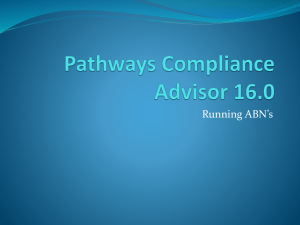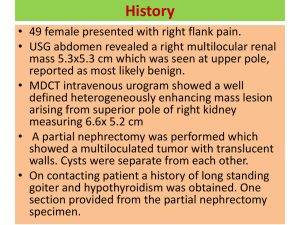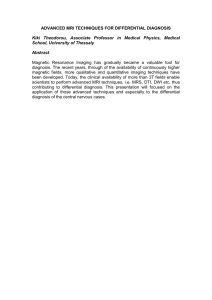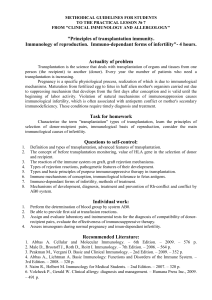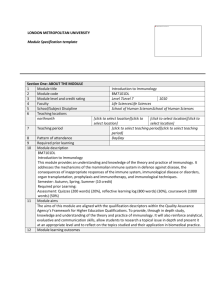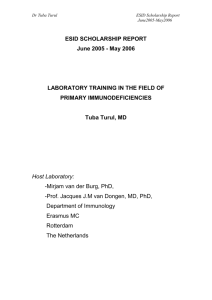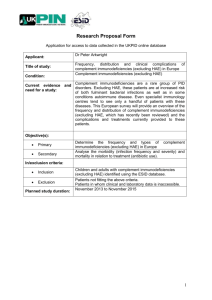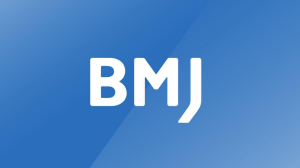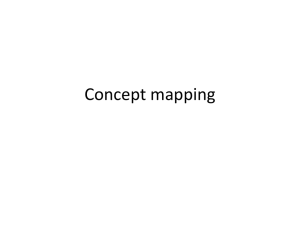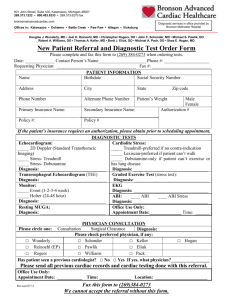My name is Iurian Sorin Ioan and I am pediatrician in Pediatric
advertisement
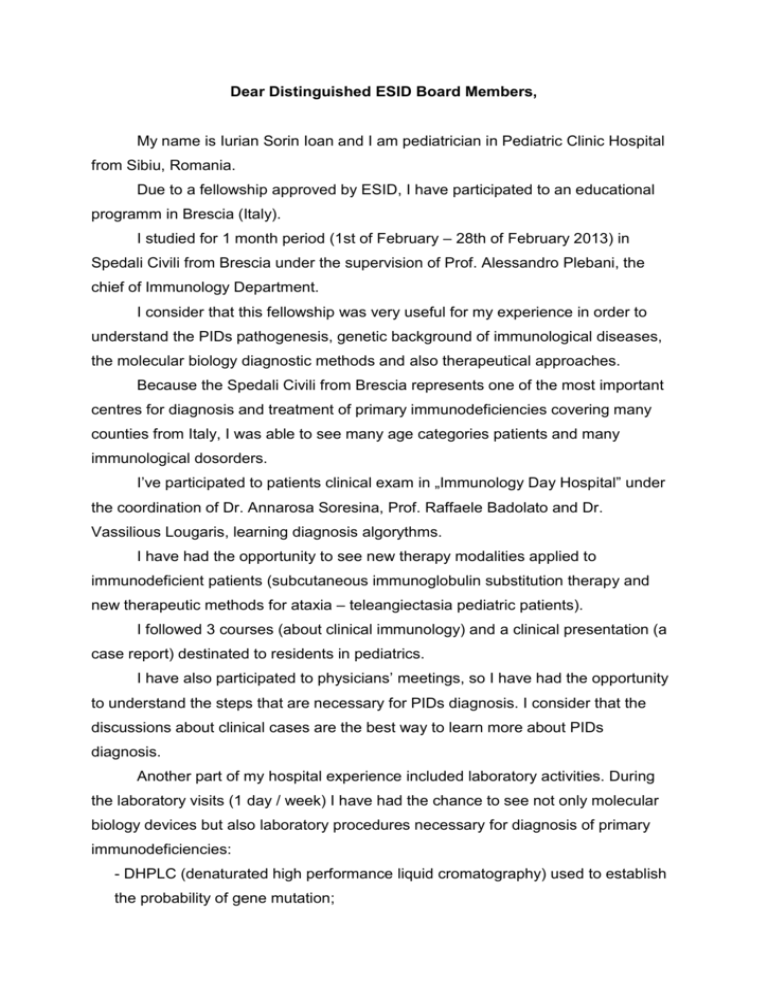
Dear Distinguished ESID Board Members, My name is Iurian Sorin Ioan and I am pediatrician in Pediatric Clinic Hospital from Sibiu, Romania. Due to a fellowship approved by ESID, I have participated to an educational programm in Brescia (Italy). I studied for 1 month period (1st of February – 28th of February 2013) in Spedali Civili from Brescia under the supervision of Prof. Alessandro Plebani, the chief of Immunology Department. I consider that this fellowship was very useful for my experience in order to understand the PIDs pathogenesis, genetic background of immunological diseases, the molecular biology diagnostic methods and also therapeutical approaches. Because the Spedali Civili from Brescia represents one of the most important centres for diagnosis and treatment of primary immunodeficiencies covering many counties from Italy, I was able to see many age categories patients and many immunological dosorders. I’ve participated to patients clinical exam in „Immunology Day Hospital” under the coordination of Dr. Annarosa Soresina, Prof. Raffaele Badolato and Dr. Vassilious Lougaris, learning diagnosis algorythms. I have had the opportunity to see new therapy modalities applied to immunodeficient patients (subcutaneous immunoglobulin substitution therapy and new therapeutic methods for ataxia – teleangiectasia pediatric patients). I followed 3 courses (about clinical immunology) and a clinical presentation (a case report) destinated to residents in pediatrics. I have also participated to physicians’ meetings, so I have had the opportunity to understand the steps that are necessary for PIDs diagnosis. I consider that the discussions about clinical cases are the best way to learn more about PIDs diagnosis. Another part of my hospital experience included laboratory activities. During the laboratory visits (1 day / week) I have had the chance to see not only molecular biology devices but also laboratory procedures necessary for diagnosis of primary immunodeficiencies: - DHPLC (denaturated high performance liquid cromatography) used to establish the probability of gene mutation; - western blooting for evaluation of protein expresion in certain disorders; - cell cultures (fibroblasts) to study cyto-skeleton anomalies; - over or under-expresion of transcription factor genes in chronic muco-cutaneous candidiasis patients using flowcytometry; - gene transfection in order to evaluate with more accuracy the involvement of gene in specific pathogenic patterns; - DNA sequencing and real-time polymerase chain reaction; - evaluation of WASP level expresion (in patient with Wiscott - Aldrich suspicion) using flow-cytometry etc. In context of association between primary immunodeficiencies and autoimmune anomalies, I have participated to visits in Rheumathology Department under the supervision of Dr. Marco Cattalini, having the oportunity to see patients with sistemic lupus, juvenile idiopathic arthritis and other diseases. Conclusions. I made few steps in the consolidation process of immunology knowledge. The improved knowledge about PIDs will help me to recognize and to treat these diseases. I consider that I gained a real benefit (not only me but also my patients from pediatric age group) due to my participation in the fellowship. I had the chance to participate to fellowship because you believe in my my motivation to learn more about primary immunodeficiencies. So, I want to thank you for this opportunity to understand more about immunological diseases. Certainly this experience helped me and I assure you that I’ll continue to improve my knowledge in this field trying to perform a better diagnosis and treatment for pediatric population in my country. With deep consideration, Iurian Sorin Ioan March 2013
